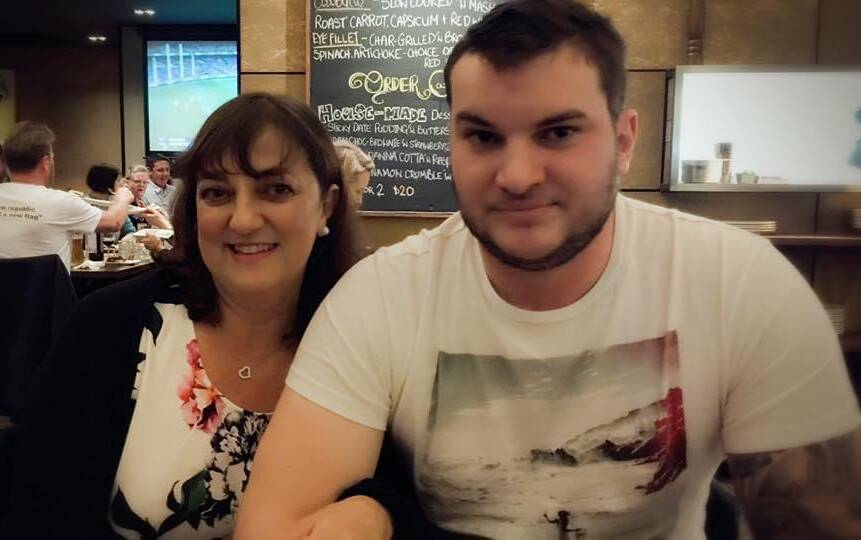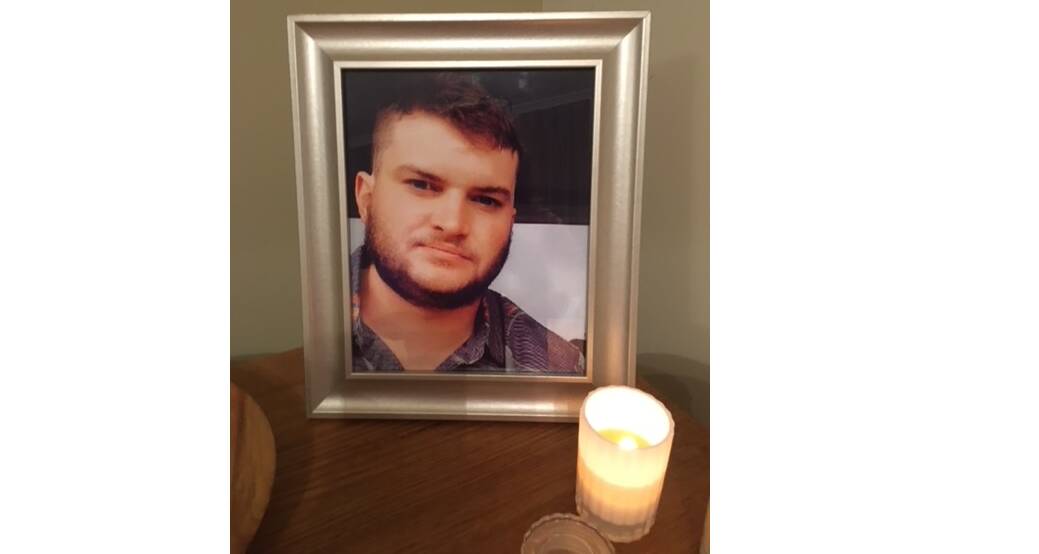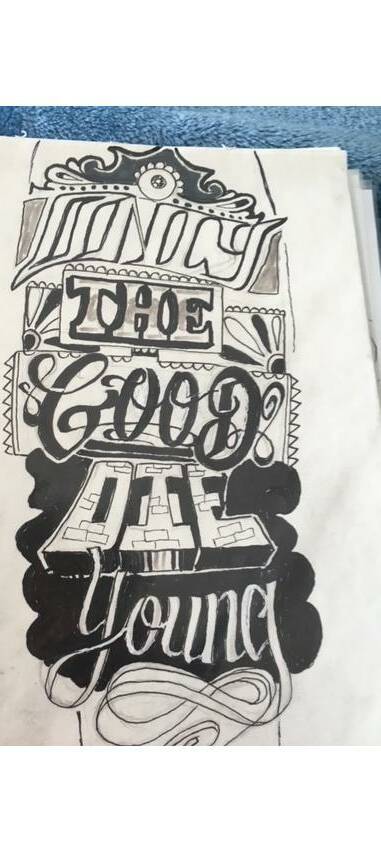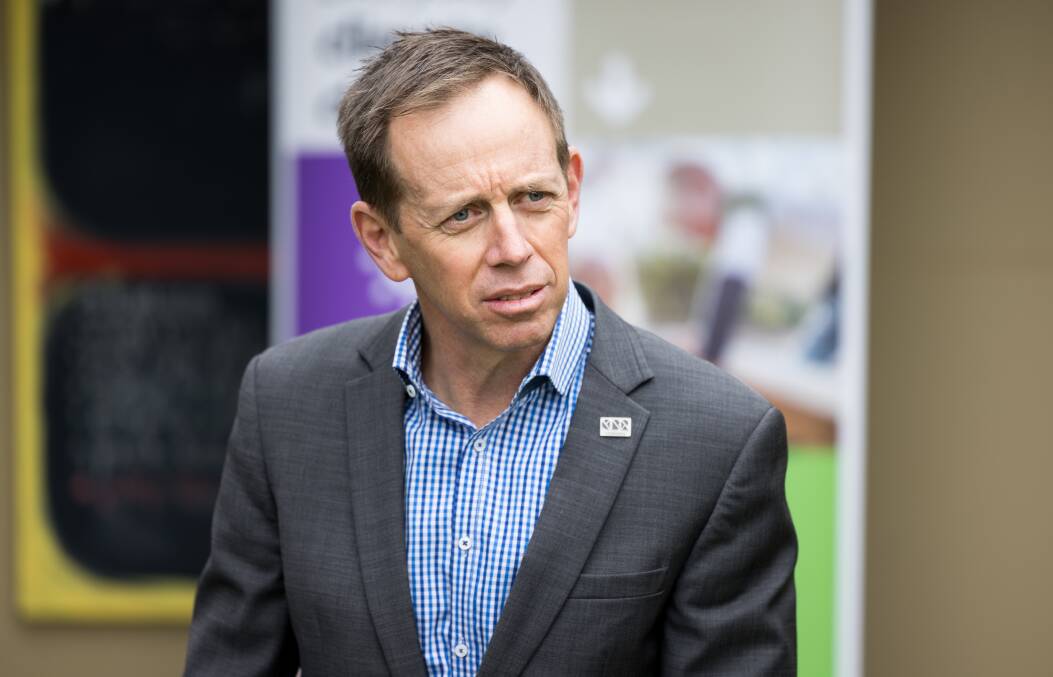
A coroner has challenged the ACT government to consider legislative changes that would allow authorities to force mentally ill addicts into drug rehabilitation.
Peter Morrison called for ACT Attorney-General Shane Rattenbury to act on Friday after conducting an inquest into the death of Dean Christopher Brice, whose grieving parents say there is "no treatment for people like our son" in Canberra.
Mr Brice, who was addicted to illicit drugs, died at Calvary Hospital in March 2020 after accidentally overdosing on methamphetamine and liquid GHB.
The 29-year-old, who had oppositional defiant disorder, schizophrenia, schizoaffective disorder, depression and anxiety, was subject to a psychiatric treatment order at the time of his death.
Mr Morrison said on Thursday that medical records showed several attempts had been made to interest Mr Brice in rehabilitation, but they had all failed.
He noted that the law acknowledged some mentally ill people did not have the capacity to make rational decisions about receiving treatment for their conditions, which was why psychiatric treatment orders existed.
However, he said, ACT law did not allow for any order to be made imposing mandatory drug rehabilitation treatment.

Mr Morrison said the case of Mr Brice made it clear the territory should make available a "holistic model of care" for people with both mental illness and drug addiction issues.
To that end, he urged the ACT government to pursue the recommendations of the Productivity Commission Inquiry Report into Mental Health in Australia.
Those include a requirement that mental health services "ensure treatment is provided for both mental illness and substance use disorder for people with both conditions".
Mr Morrison also recommended that the territory government review the NSW Involuntary Drug and Alcohol Treatment program, which allows involuntary assessment, detention, stabilisation and treatment as an option of last resort.
The coroner followed up on the issue less than 24 hours after making his recommendations, using a speech at his retirement ceremony on Friday to address Mr Rattenbury directly.
"The time has come for you to lock onto the target and hit the launch button," Mr Morrison told the Attorney-General.

In making his recommendations, Mr Morrison described Mr Brice's parents, Caterina and Michael Brice, as "staunch advocates in his memory".
Outside the ACT Coroner's Court on Thursday, Mrs Brice said her son was "very artistic and a very sensitive person", who "had a lot of love for people around him".
"He was so many things," she said.
Mrs Brice said her son's life had been destroyed by methamphetamine, "the scourge of society" commonly referred to as "ice".
She believed he used illicit drugs to "calm his chaotic mind", and said she had hit "brick walls" in her attempts to get him the help he needed because treatments designed to address his mental illnesses would not deal with his substance abuse.
Mrs Brice said this needed to change because it was obvious people like her son "fall through the cracks".
"There's no treatment for people like our son in Canberra," Mrs Brice said.
She added that she believed facilities like the Canberra Hospital adult mental health unit, from which Mr Brice was discharged about seven months before his death, were underfunded and under-resourced.
Mrs Brice and her husband asked Mr Morrison to also examine that hospital's decision to discharge Mr Brice, who was said to have immediately returned to drug-taking upon his release while in a "paranoid" state of mind.
However, Mr Morrison found this issue was beyond the scope of the inquest.
Mr Brice snr said he ultimately hoped the coroner's recommendations would prompt the ACT government to take meaningful action.
"We want something positive to come from our loss," he said.

Mr Rattenbury told The Canberra Times he was interested to read the coroner's report, adding that he thought it was "upon us to continue to look at reform".
Speaking outside court on Friday morning, he said there was no doubt many people had both mental health and drug addiction issues.
He predicated there would be "hotly contested" views on whether it was appropriate to force people to attend drug rehabilitation.
"It invites reflection," Mr Rattenbury said of the issue.
Whatever the outcome of the Brice family's advocacy ends up being, it will sadly be too late to save their son Dean.
"Our grief goes on forever," Mrs Brice said.







